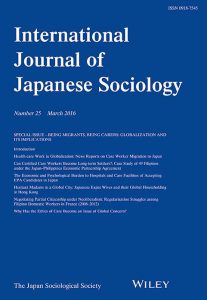Unemployed in America
 by smteixeirapoit
by smteixeirapoit
In 1962, economist Arthur Okun stated that when the economy expands, employment rises at a predictable rate and when the economy contracts, employment declines at a similar rate. Recently, Lawrence Summers, Director of President Barack Obama’s National Economic Council, commented that “Okun’s Law” may be incorrect. In the United States, employment rates decreased faster than Okun’s law predicted. Although Okun’s law suggested that the unemployment rate should be around 8.5 percent, it is around 10.0 percent.
A recent Times article entitled “Jobless in America: Is Double-Digit Unemployment Here to Stay?” raises several questions. First, will unemployment rates continue to increase? Although the American Recovery and Reinvestment Act is based on the predicted 8.9 percent unemployment, around 15.0 percent unemployment is more realistic. Even 15.0 percent unemployment is misleading because this figure does not account for the underemployed, those discouraged from seeking work, and those not seeking work.
Second, will full employment “suddenly be antiquated”? Perhaps, full employment is not realistic under capitalism. Under Karl Marx’s pauperization thesis, capitalists need the unemployed because they act as a reserve army of labor. During prosperous times, the unemployed become part of the work force and help maintain low wages. As capitalists accumulate more and more wealth at one pole, numerous individuals remain impoverished at the other pole.
In 1986, Summers articulated the idea of hysteresis, where an economy smashes and cannot be restored. A third question stems from this idea: Has the economy undergone hysteresis? In the past century, the three heaviest episodes of unemployment occurred in the 1930s, 1980s, and today. In the 1980s, the unemployed were able to return to their previous jobs. However, in the 1930s, the structure of the labor market changed. The unemployed were unable to return to the agricultural sector and had to transition into the industrial sector. Just as structural change occurred in the 1930s, it is happening today.
The Peterson Institute’s Jacob Kirkegaard remarks: “A lot of the jobs that have been lost will never come back.” If Kirkegaard is correct, then employment expansion alone cannot employ Americans. To address this glitch in Okun’s Law, the government will have to reshape what it means to be employed and unemployed in America.

















1728-4457/asset/PopulationCouncilLogo.jpg?v=1&s=03074651676b98d6b9d0ef1234bd48fe7ff937c3)
1530-2415/asset/SPSSI_logo_small.jpg?v=1&s=703d32c0889a30426e5264b94ce9ad387c90c2e0)
Fabulous post! I was just talking about Marx’s reserve army of labor in class yesterday. I will suggest this to my students to look at, as I think they will be very interested to read other ideas about unemployment.
Keri